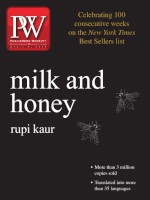At age 15, Yusra Mardini fled war-torn Syria. A year later, she was a member of the first Refugee Olympic Athletes Team at the 2016 Summer Olympics. In Butterfly (St. Martin’s, May), Mardini, a lifelong swimmer, writes of saving fellow refugees from drowning on an overcrowded dinghy bound for Greece. Once settled at a refugee camp in Berlin, she ramped up her training and achieved her goal of swimming at the Olympics.
Immigrant stories have long been integral to professional sports, too. Luis Tiant, a star pitcher for the Boston Red Sox in the 1970s, first developed his talents in Cuba. In Son of Havana (Diversion, Feb. 2019), written with Miracle at Fenway author Saul Wisnia, Tiant recounts his 18-year MLB career, and his return to Cuba after decades away to help thaw the frosty relationship between the United States and his home country.
Felipe Alou arrived in the U.S. from the Dominican Republic in 1956, the first Dominican to play Major League Baseball, paving the way for numerous others, including two of his brothers and his son Moisés. He was an All-Star player and later a successful manager, winning 1994’s National League Manager of the Year. The baseball lifer tells his story in Alou (Univ. of Nebraska, Apr.), written with journalist Peter Kerasotis.
The tiny Polynesian island of Samoa is the homeland of a healthy roster of skilled NFL players, including rising star Marcus Mariota and former All-Pro Troy Polamalu. Tropic of Football (New Press, July), by University of Pittsburgh historian Rob Ruck, details the historical factors and warrior self-image that help Samoans succeed on the gridiron but also make them especially vulnerable to concussions and other brain injuries.
Professional basketball is indisputably a global game. In addition to stars such as Giannis Antetokounmpo (Greece), Dirk Nowitzki (Germany), and Tony Parker (France), the NBA boasts a vast worldwide audience—the 2017 finals were covered by 265 journalists from 35 countries.
A single country—South Sudan—has had a major impact on the hoops scene in Omaha, Neb., which is home to what’s thought to be the largest Sudanese population outside of Africa. In Citizen Akoy (Univ. of Nebraska, Feb. 2019), journalist Steve Marantz profiles Akoy Agau, who fled war-torn Sudan with his family as a child and whose later prowess on the court helped turn Omaha into a recruiting hot spot for college coaches. Marantz examines how basketball helped merge two cultures in the heartland, and his book joins a roster of titles that show how immigrants get the job done.



 Volume 265
Issue 14
04/02/2018
Volume 265
Issue 14
04/02/2018





